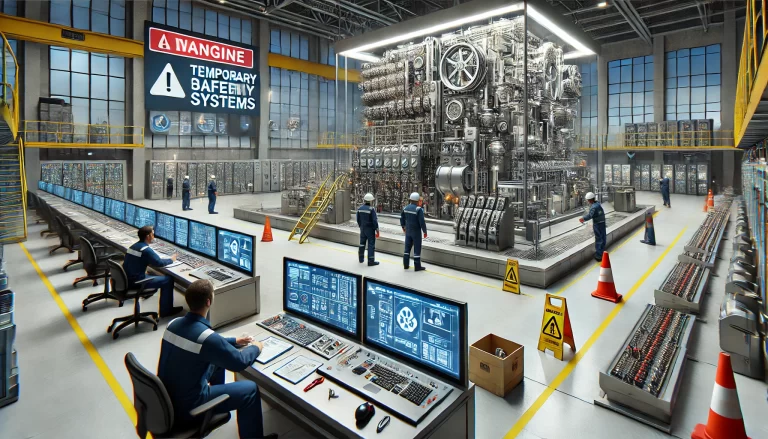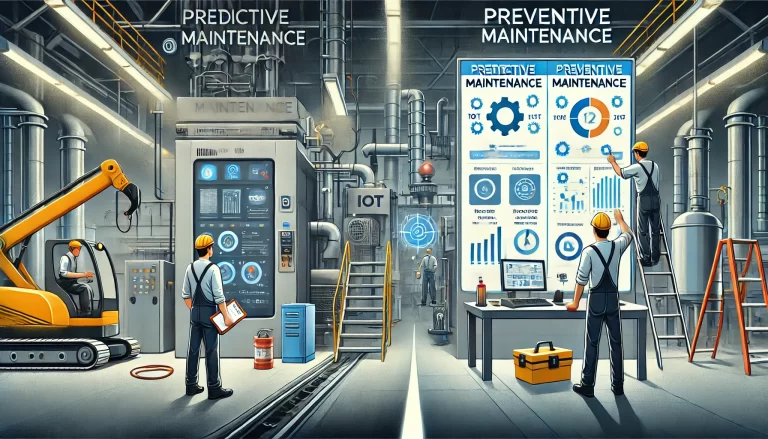In the world of industrial instrumentation, experience is not measured by years alone. You could work for ten years and merely repeat the first year’s experience nine times. Or, you might master the essentials in just three years, handling projects independently, thinking systematically, and solving problems methodically.
Just like many other industries, instrumentation places heavy emphasis on three aspects:
Mindset
Technical Skill
Professional Attitude
Today, let’s explore the ten most common signs of inexperience among instrument technicians. Some of these might be happening to you without even realizing it — and they could be affecting your career growth.
1. Lacking Independent Thinking: Blindly Copying Without Adapting
❌ Many inexperienced technicians tend to simply mimic previous installations without considering on-site changes, parameter variations, or even asking about different process conditions.
✅ An experienced technician first asks: “Where is this equipment used? What are the fluid properties, temperature, and pressure? Were there any issues with the previously used instruments?” They combine working principles, selection logic, and installation conditions to make informed decisions.

2. Poor Drawing Literacy: Struggling with P&ID, Loop, and Wiring Diagrams
❌ Receiving a P&ID or wiring diagram feels overwhelming. Installations and wiring are done “by feeling,” leading to frequent mistakes and rework.
✅ A professional technician understands that reading drawings is fundamental, whether you’re in installation, commissioning, or maintenance. If you don’t understand, ask questions early to avoid costly mistakes later.
3. Ineffective Use of Tools: Guesswork Instead of Diagnosis
❌ During commissioning, some technicians randomly tweak devices, use multimeters without understanding proper diagnostics, or blindly adjust zero settings.
✅ Skilled technicians efficiently use tools like HART communicators, communication software, and 24V simulation sources for fast, accurate troubleshooting.
✨ Tools are your best partners. Working without them is like a doctor diagnosing without a stethoscope — accidents are inevitable.
4. Lack of Workflow: Disorganized and Forgetful
❌ Installation processes are chaotic. Commissioning steps are forgotten. Maintenance feels like constant firefighting, and technicians cannot recall previous steps when issues arise.
✅ Experienced technicians follow Standard Operating Procedures (SOPs), record logs, and systematically document troubleshooting steps for continuous improvement.
✨ Organized work is a hallmark of true experience.

5. Passive Learning Attitude: Waiting for Others to Teach
❌ Faced with an unfamiliar instrument, inexperienced technicians simply give up or wait for instructions instead of taking initiative.
✅ Dedicated professionals proactively search for manuals, manufacturer datasheets, setup software, and industry guidelines.
✨ The ability to independently solve problems is what separates junior technicians from true experts.
6. Fault Isolation by Trial and Error: No Logical Troubleshooting
❌ When alarms occur, inexperienced technicians start unplugging cables, adjusting devices randomly, or disassembling components unnecessarily.
✅ A seasoned technician approaches troubleshooting like solving a puzzle: read the alarm codes, determine the stage of failure (sensor, wiring, or system), and systematically isolate the fault, minimizing downtime and material waste.
7. No Habit of Summarizing: Repeating the Same Mistakes
❌ Each maintenance incident feels like starting from scratch. Even after solving a problem, the same issues reappear later.
✅ Experienced instrument engineers treat every commissioning or maintenance session as a learning opportunity: documenting problems, taking photos of critical cases, and building their “personal instrument handbook.”
✨ In the instrumentation field, growth requires reflection and documentation.

8. Poor Installation Practice: Ignoring Maintenance and Accessibility
❌ Instruments are installed wherever convenient at the time — ignoring future maintenance access. Result: maintenance teams struggle to reach, disconnect, or calibrate devices later.
✅ Thoughtful technicians consider pipeline interference, cable routing, environmental factors, and ease of future maintenance during installation.
9. Lack of Process Understanding: Focusing Only on the Instrument Itself
❌ “As long as the signal is transmitted, my job is done.” Inexperienced technicians only focus on the device without understanding what it’s measuring or how the data will be used.
✅ True experts invest time to understand process parameters, control loops, DCS/PLC interface requirements, and how instrumentation impacts overall plant operation.
✨ Understanding the big picture leads to better decision-making and troubleshooting.
10. Lack of Accountability: Shifting Blame
❌ When failures occur, inexperienced workers’ first response is “It wasn’t me” or “It was fine when I finished.”
✅ Professional technicians don’t rush to deflect blame. They analyze the issue, learn from mistakes, and take proactive responsibility for solving problems.
✨ In instrumentation, accountability is the foundation of credibility.

Final Thoughts
Experience is not built by repeating tasks mechanically. It is forged by asking questions, thinking critically, documenting lessons, and taking ownership of problems. Every commissioning, every calibration, every breakdown holds a lesson — if you are willing to learn from it.
In the end, a true instrumentation professional is not someone who never encounters problems but someone who grows stronger after each challenge.
How many of these signs do you recognize in yourself? And more importantly, how many are you ready to change?
“Success in instrumentation isn’t about avoiding problems — it’s about solving them better and faster every time.”
